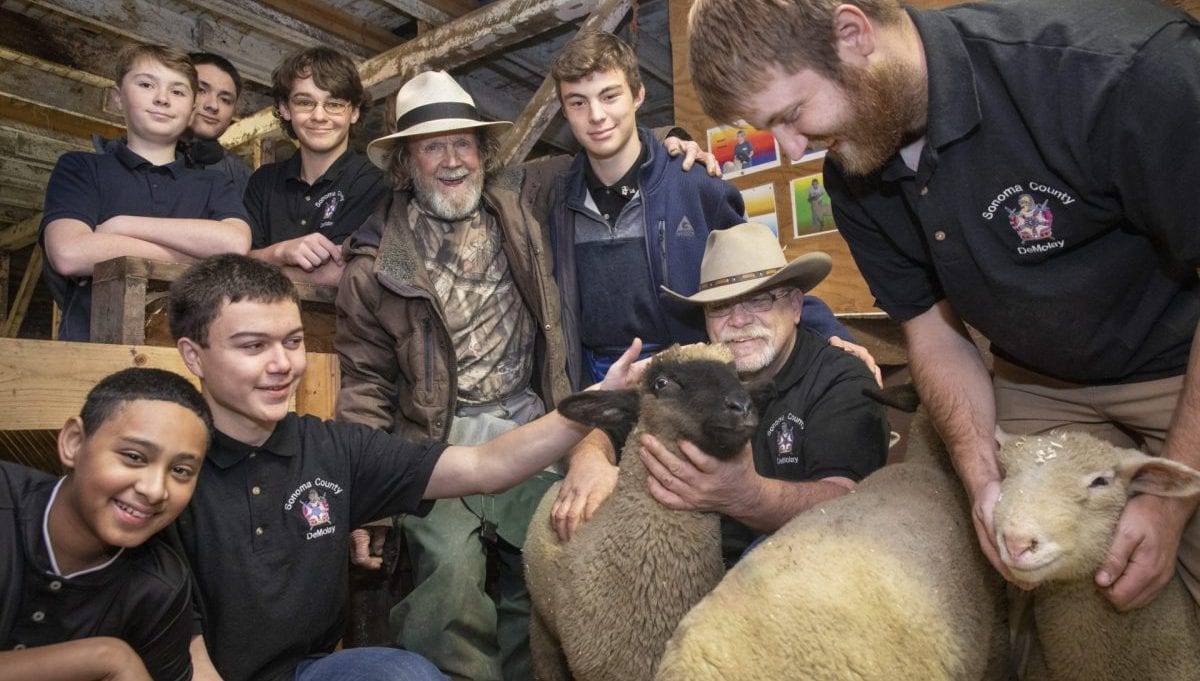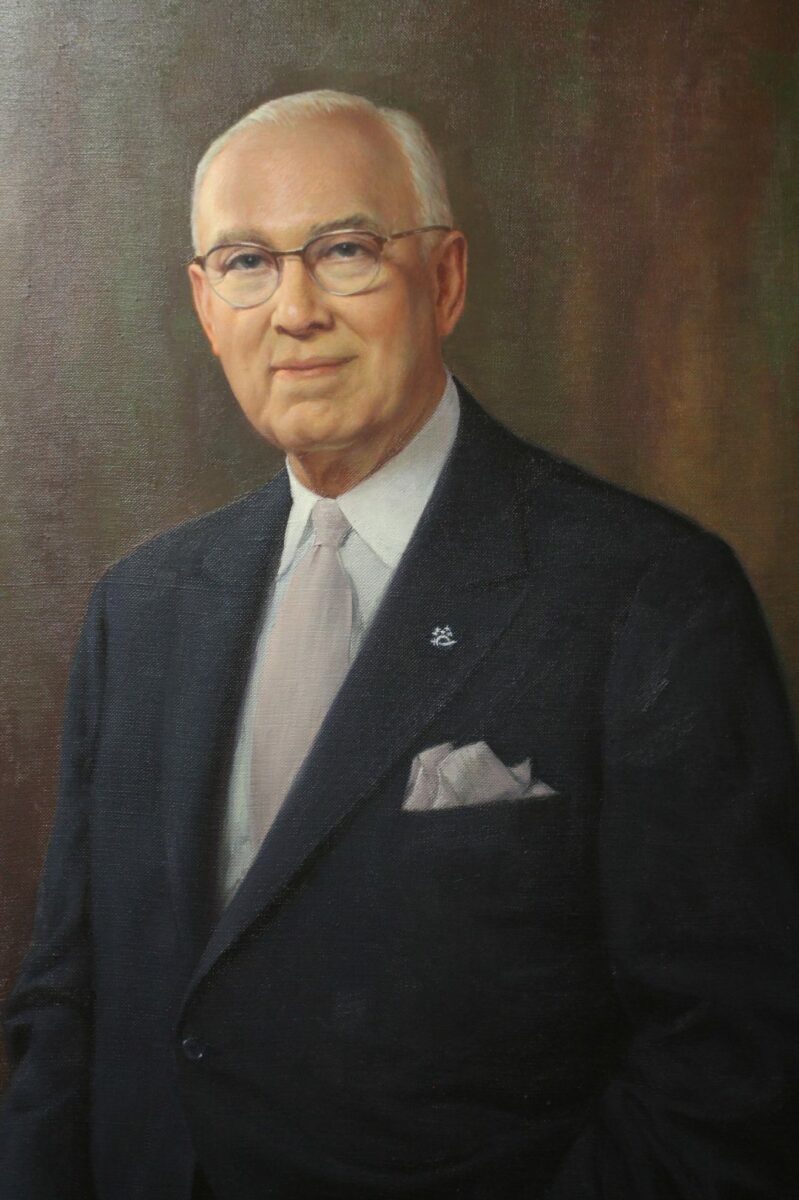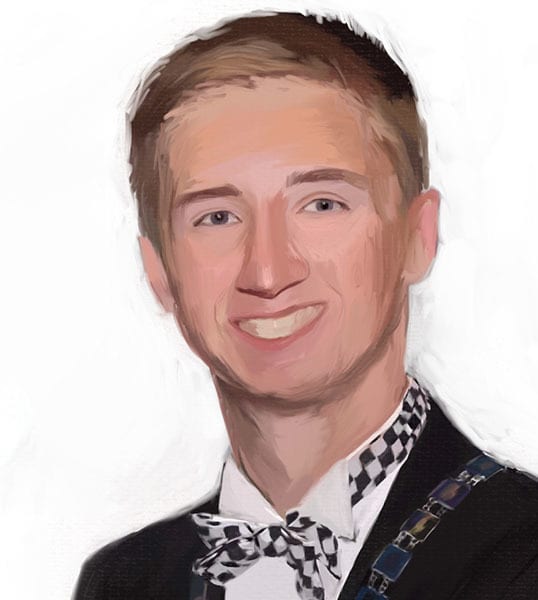
Mentors in the Field
One Northern California lodge found that giving back to local DeMolays brought great meaning and purpose to the young men they supported.
By John L. Cooper III, Past Grand Master
The Order of DeMolay is named for a 14th century warrior monk, the last grand master of a military organization created to fight Muslim armies in the area of the Middle East known today as Israel and Palestine. How did an organization of young men sponsored by Freemasons choose, as its hero and exemplar, the 80-year-old head of a defunct group of monks who died in the year 1314 C.E.?
They organized athletic tournaments, charity projects, and large-scale conventions. Each had joined DeMolay in their teens, but it wasn’t until this leadership year that they formed truly unbreakable bonds. “Ours was an experience that you would never get in student body government,” says Welch. “We realized we were part of something special.”
This mystery begins with the development of the Scottish Rite ritual, which was written by our early brethren in the 18th century. These degrees came into existence before the birth of the Scottish Rite as a Masonic organization, and it is within the 30° that Jacques DeMolay’s life is chronicled.
The storyline is a simple one. A once-proud order of warrior monks dedicated to the medieval ideals of knighthood – the Knights Templar – was destroyed by a king who wanted their money and would stop at nothing to get it. The king hatched a plot to arrest all the leading Templars on a single day, Friday, October 13, 1307, and force them to confess to crimes of which they were innocent. With the cooperation of other greedy and ambitious people, the king succeeded with his nefarious plot. Over the next seven years, the leaders of the Templars were tortured and forced to confess to things that they had never done. At the end, only DeMolay, their grand master, and some of his key supporters remained. When they still refused to give in, the king burned two of them alive, and that was the end of the Knights Templar.
Though we do not know exactly why the brothers who wrote the Scottish Rite ritual chose to include DeMolay’s story, it is likely that they found his martyrdom at the hands of political opportunists and religious fanatics compelling because it fit well with the Masonic principles, as they imagined them. His life presents a strong allegory for loyalty to one’s friends, faithfulness to promises made, and a commitment to the ideals of knighthood as exemplified by the Knights Templar, of which DeMolay was the last grand master.
In 1919, Frank S. Land was head of the Scottish Rite employment bureau in Kansas City, Missouri. A young man came to him looking for a job; he was the son of a Mason who had lost his life in World War I, which had just concluded. The young man’s friends soon came to meet Land too, as he was friendly and easy to get to know. These young men formed first a baseball team, and later a club founded in Masonic principles.

The club met at the Scottish Rite building, and in helping them to choose its name, Land told them about the famous historic men whose stories peppered the Scottish Rite degrees. The boys were intrigued by the story of DeMolay, and chose him as the “exemplar” of their new organization.
So, what did Land and other Freemasons learn from DeMolay’s story? And what did they share with the young men who founded the Order of DeMolay in 1919? The ideals that they adopted are simple, and yet profound. Here are some of them:
It was ideals such as these that can be gleaned from DeMolay’s story that probably attracted Freemasons to bring his story into the Scottish Rite degree system in the first place. And it is certain that these values attracted the young men who formed the first chapter of the Order of DeMolay to choose this story as theirs. Freemasons and DeMolays both belong to an organization that places loyalty to one’s principles and ideals above anything that would tempt them to abandon their commitment. Both have learned how important it is never to give in!
See the year each country opened its first DeMolay chapter. Information sourced from DeMolay International.
Longtime members and new brothers can use these questions as the starting point for a discussion in lodge, or in one-on-one conversations.
PHOTOGRAPHY CREDIT:
DeMolay.org

One Northern California lodge found that giving back to local DeMolays brought great meaning and purpose to the young men they supported.

Teenagers today are facing challenges that no other generation has faced – and so are their parents.

This winning essay by DeMolay member Jake Vermeulen addresses the enduring important of DeMolay.